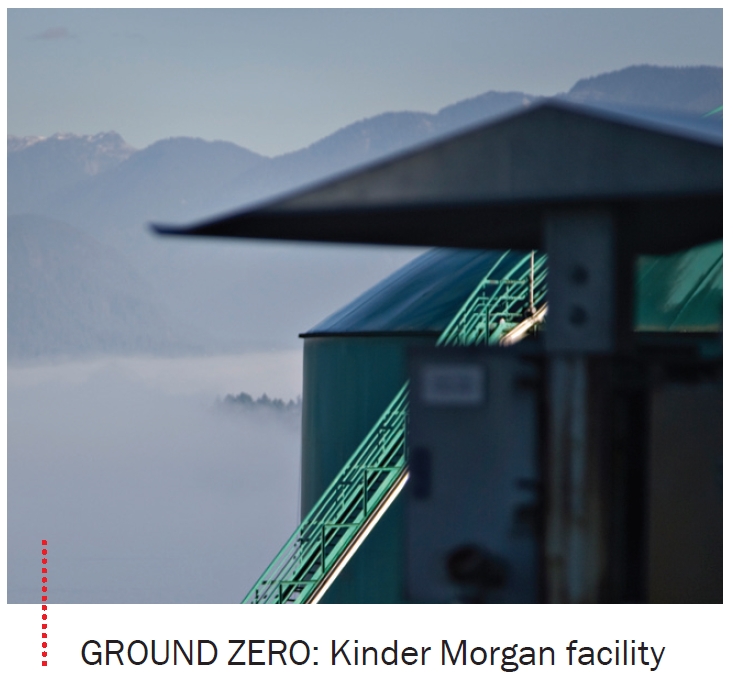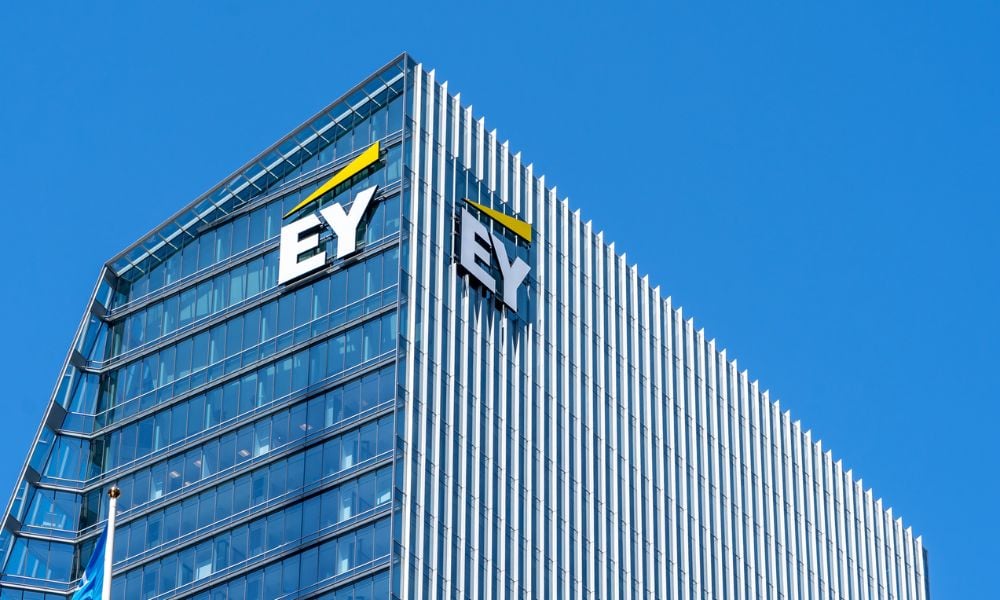Rhetoric intensifies as city threatens to deny emergency services
By Brian Burton
IN THE LATEST challenge to what the energy industry calls its “licence to operate,” Burnaby, BC, is threatening to withhold emergency services in the event of an oil spill on the proposed Trans Mountain Pipeline expansion. A Burnaby press release says the municipality has filed 300 pages of questions challenging the viability of the plan by Kinder Morgan Canada.
“These are critical questions that focus on the hundreds of ways in which Kinder Morgan's proposed pipeline and tank farm would threaten our city's safety,” Burnaby Mayor Derek Corrigan says in the release. “We know that most of the risks are insurmountable and cannot be overcome with Kinder Morgan's money.”
The Kinder Morgan plan is one of four multi-billion-dollar pipeline proposals that are facing trenchant opposition from First Nations, environmental groups and communities along their routes.
Regulatory lawyer Gordon Nettleton, of McCarthy Tétrault LLP in Calgary, called it “extremely bizarre” that Burnaby “would want to go on record saying it might not provide emergency services to a law-abiding corporate citizen.” Nettleton said it was “hyperbole at its worst.”
Having just returned from visiting potential energy investors in Southeast Asia, Nettleton said, “The rest of the world is mystified” at Canada's propensity to damage its own best interests by hobbling resource development. But he rejected any notion that the industry's licence to operate may be in jeopardy.
David Bursey, of Bull, Housser & Tupper LLP in Vancouver, said he thinks the Burnaby statement on denying services was a way of expressing concern for risks associated with the project.
“It seems like it's rhetoric to gain attention and leverage,” Bursey said. “But it's leverage that has a weak foundation.” There would be “serious legal and social implications” in the event of withholding emergency services. “Municipalities employ those police officers and firefighters, but they fulfill those obligations under statutes, such as the Criminal Code.”
Bursey says the energy industry's social licence is “a delicate balance of how risks and benefits are distributed. Building a social licence depends on how those risks and benefits are reconciled. How far does social licence go? Is it a veto or does it have to be considered when the government makes tough decisions?
“There are a number of decisions that have to come out” before the social licence issue can be assessed, Bursey says. The first of those is expected to be the Northern Gateway decision, due from federal Cabinet in June following an approval recommendation from the Joint Review Panel last December. The project would move 525,000 barrels of oil sands crude per day from Edmonton to Kitimat, BC.
What the government decides – and how project opponents react – may say much about the energy industry's licence to operate in Canada, as well as how the US should view the long-delayed Keystone application to build a pipeline from Edmonton to the Gulf Coast.
By Brian Burton
IN THE LATEST challenge to what the energy industry calls its “licence to operate,” Burnaby, BC, is threatening to withhold emergency services in the event of an oil spill on the proposed Trans Mountain Pipeline expansion. A Burnaby press release says the municipality has filed 300 pages of questions challenging the viability of the plan by Kinder Morgan Canada.
“These are critical questions that focus on the hundreds of ways in which Kinder Morgan's proposed pipeline and tank farm would threaten our city's safety,” Burnaby Mayor Derek Corrigan says in the release. “We know that most of the risks are insurmountable and cannot be overcome with Kinder Morgan's money.”
The Kinder Morgan plan is one of four multi-billion-dollar pipeline proposals that are facing trenchant opposition from First Nations, environmental groups and communities along their routes.
Regulatory lawyer Gordon Nettleton, of McCarthy Tétrault LLP in Calgary, called it “extremely bizarre” that Burnaby “would want to go on record saying it might not provide emergency services to a law-abiding corporate citizen.” Nettleton said it was “hyperbole at its worst.”
Having just returned from visiting potential energy investors in Southeast Asia, Nettleton said, “The rest of the world is mystified” at Canada's propensity to damage its own best interests by hobbling resource development. But he rejected any notion that the industry's licence to operate may be in jeopardy.
David Bursey, of Bull, Housser & Tupper LLP in Vancouver, said he thinks the Burnaby statement on denying services was a way of expressing concern for risks associated with the project.
“It seems like it's rhetoric to gain attention and leverage,” Bursey said. “But it's leverage that has a weak foundation.” There would be “serious legal and social implications” in the event of withholding emergency services. “Municipalities employ those police officers and firefighters, but they fulfill those obligations under statutes, such as the Criminal Code.”
Bursey says the energy industry's social licence is “a delicate balance of how risks and benefits are distributed. Building a social licence depends on how those risks and benefits are reconciled. How far does social licence go? Is it a veto or does it have to be considered when the government makes tough decisions?
“There are a number of decisions that have to come out” before the social licence issue can be assessed, Bursey says. The first of those is expected to be the Northern Gateway decision, due from federal Cabinet in June following an approval recommendation from the Joint Review Panel last December. The project would move 525,000 barrels of oil sands crude per day from Edmonton to Kitimat, BC.
What the government decides – and how project opponents react – may say much about the energy industry's licence to operate in Canada, as well as how the US should view the long-delayed Keystone application to build a pipeline from Edmonton to the Gulf Coast.





